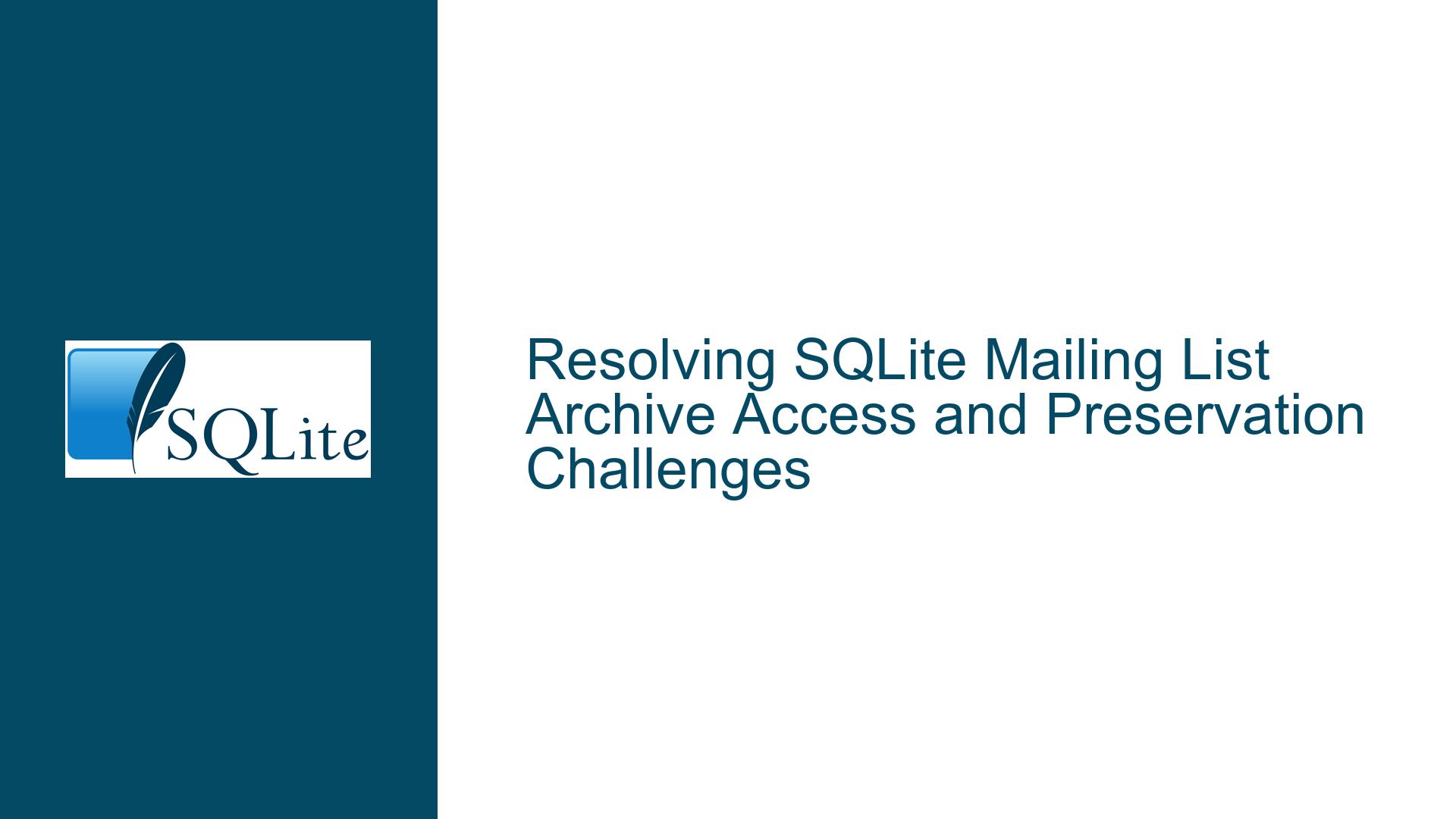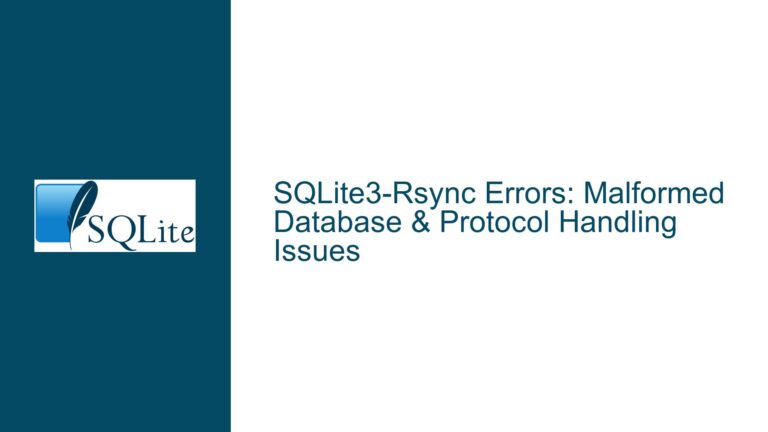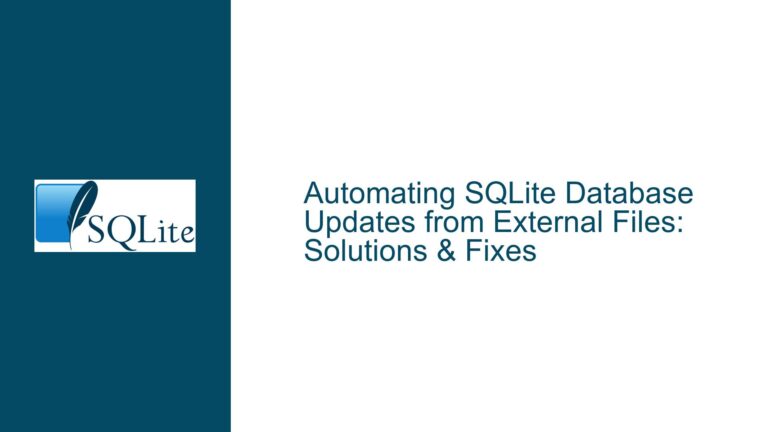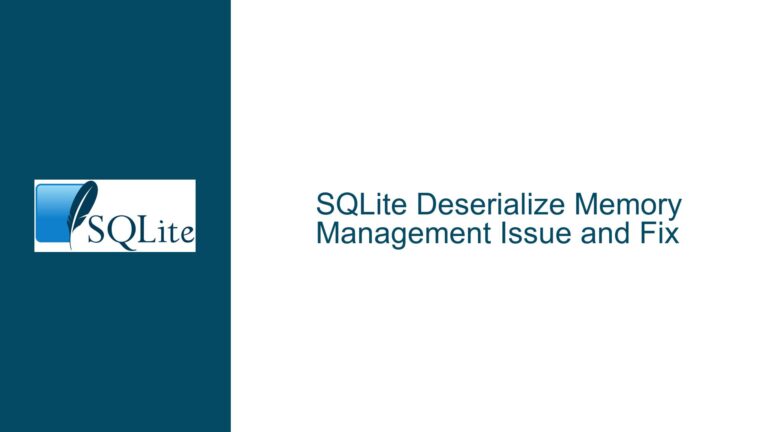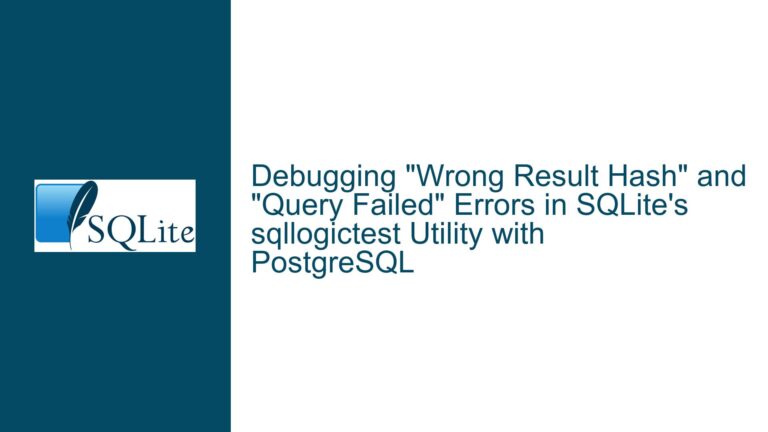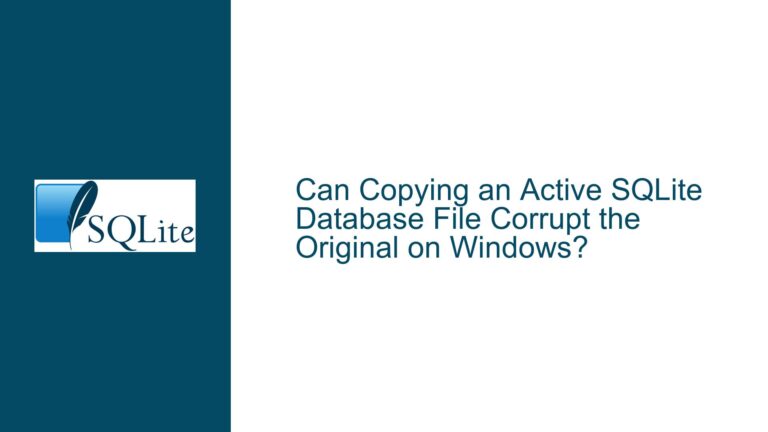Resolving SQLite Mailing List Archive Access and Preservation Challenges
Understanding the Disruption of Historical SQLite Mailing List Archives
Issue Overview: The Disappearance of Nabble-Hosted SQLite Mailing Lists and Preservation Concerns
The SQLite community relies on historical technical discussions to troubleshoot edge cases, understand legacy implementations, and trace the evolution of SQLite’s design principles. A critical resource for this knowledge was the Nabble-hosted SQLite mailing list archive (sqlite.1065341.n5.nabble.com), which became inaccessible in August 2021. Users reported prolonged downtime, raising concerns about permanent loss of valuable technical discourse. This archive contained threads spanning decades, addressing topics such as database optimization, transactional behavior, and compatibility with older SQLite versions.
The problem extends beyond temporary downtime. Nabble, a third-party platform, was never officially maintained by the SQLite organization. This dependency introduced fragility: when Nabble’s service faltered, the community lost access to decades of context-rich discussions. Additionally, debates emerged about the risks of preserving outdated advice. For example, techniques for managing concurrency before the introduction of Write-Ahead Logging (WAL) mode in 2010 could mislead developers working with modern SQLite versions. However, proponents of preservation argue that historical threads remain valuable when contextualized, especially for maintaining legacy systems or understanding design trade-offs.
The SQLite team’s migration to the Fossil-based forum (https://sqlite.org/forum) exacerbated the issue. While Fossil offers integrated version control and searchable archives, the transition left the Nabble-hosted content orphaned. Fossil’s design allows combining source code, documentation, and forum discussions in a single repository, but the SQLite team chose to keep the forum separate. This decision highlights a broader challenge: balancing accessibility of historical data with the risk of disseminating obsolete solutions.
Possible Causes: Third-Party Service Reliance, Content Obsolescence, and Archival Strategy Gaps
Third-Party Platform Instability: Nabble’s downtime exposed the risks of relying on external services for critical knowledge preservation. The SQLite team had no control over Nabble’s infrastructure, leaving the community vulnerable to service disruptions. This is a common pitfall for open-source projects that leverage third-party platforms for mailing lists, wikis, or issue tracking.
Content Obsolescence and Misinformation Risks: SQLite’s rapid evolution—such as the introduction of WAL mode, improvements in partial indexes, or stricter type affinity rules—renders older discussions potentially misleading. For instance, a 2008 thread advocating manual checkpointing might ignore WAL’s automated advantages. Without version-specific warnings, developers might apply outdated patterns to modern systems, introducing inefficiencies or bugs.
Incomplete Archival Strategy: The migration to Fossil did not include a structured plan for preserving the Nabble archive. While Fossil supports cloning repositories for offline access, the SQLite team initially opted against merging historical mailing list content into their Fossil instance. This created a gap: the new forum lacked historical context, and the old archive became inaccessible.
Community Reliance on Unofficial Archives: Individual users, like "tom" in the discussion, created personal backups of the Nabble archive. While commendable, this decentralized approach risks fragmentation. Without a centralized, version-controlled repository, critical knowledge remains siloed or dependent on volunteer efforts.
Philosophical Debates on Preservation: The discussion reveals a tension between preserving historical accuracy and maintaining relevance. Some argue that outdated content should be deprecated to avoid confusion, while others emphasize the value of historical context for specialized use cases (e.g., maintaining embedded systems with decades-old SQLite versions).
Troubleshooting Steps, Solutions, and Fixes: Restoring Access and Ensuring Sustainable Archival Practices
Step 1: Verify the Status of the Nabble Service
Begin by confirming whether the outage is temporary or permanent. Check Nabble’s status page (if available), DNS resolution for sqlite.1065341.n5.nabble.com, and community reports. Use tools like dig or nslookup to test domain resolution:
dig sqlite.1065341.n5.nabble.com +short
If the domain no longer resolves, contact Nabble’s support team to inquire about data recovery options. If the service is permanently discontinued, proceed to alternative solutions.
Step 2: Leverage Community-Backed Archives
User "tom" mentioned possessing a 320 MB ZIP archive of the mailing list. Collaborate with the SQLite team to validate and host this archive. Potential strategies include:
- Fossil Repository Integration: Convert the archive into Fossil-compatible markdown or HTML files. Use Fossil’s built-in versioning to tag posts with SQLite version metadata (e.g.,
[SQLite 3.7.0]). - Static Site Generation: Transform the archive into a static website hosted on SQLite.org, with disclaimers about content obsolescence. Tools like
JekyllorHugocan automate this process.
Step 3: Implement Version-Specific Content Warnings
To mitigate misinformation risks, add prominent banners to historical posts. For example:
<div class="warning">
<strong>Notice:</strong> This thread discusses SQLite 3.6.22 (released 2009).
Features mentioned here may be deprecated or superseded in newer versions.
Refer to the <a href="https://sqlite.org/changes.html">SQLite Change Log</a> for updates.
</div>
Automate this by parsing post dates and correlating them with SQLite release timelines. A simple Python script could map dates to versions using the sqlite_history.db dataset (available via Fossil).
Step 4: Adopt Fossil’s Decentralized Archival Capabilities
Fossil’s distributed nature allows cloning the forum repository, including all historical posts. Promote this feature to the community:
fossil clone https://sqlite.org/forum forum.fossil
fossil open forum.fossil
Encourage users to clone and mirror the repository, ensuring redundancy. For the Nabble archive, create a new Fossil repository and merge it with the existing forum using fossil export and fossil import commands.
Step 5: Establish a Content Review Workflow
Form a volunteer group to curate historical posts. Tasks include:
- Flagging outdated advice (e.g., manual vacuuming pre-autovacuum).
- Linking to modern equivalents (e.g., “For SQLite 3.37.0+, use
STRICT tablesinstead”). - Removing actively harmful content (e.g., workarounds that exploit deprecated APIs).
Step 6: Advocate for Federated Archival Standards
Collaborate with organizations like the Software Heritage Foundation or Internet Archive to ensure perpetual access. Submit the Nabble archive to these services using their APIs:
import requests
with open('sqlite-nabble-archive.zip', 'rb') as f:
requests.post('https://archive.org/services/upload', files={'file': f})
Step 7: Develop a Version-Aware Search Engine
Enhance the Fossil forum’s search functionality to prioritize results by SQLite version. For example, a user searching for “WAL mode” could filter results by release date or version number. Implement this using SQLite’s Full-Text Search (FTS5) extension:
CREATE VIRTUAL TABLE forum_fts USING fts5(
content,
version,
tokenize='porter unicode61'
);
-- Query with version filter
SELECT snippet(forum_fts, 1, '<b>', '</b>', '...', 32)
FROM forum_fts
WHERE forum_fts MATCH 'WAL mode'
AND version >= '3.7.0';
Step 8: Encourage Community Contributions to Fossil
Leverage Fossil’s built-in wiki and ticketing system to document archival efforts. For example, create a ticket titled “Migrate Nabble Archive to Fossil” and assign it to volunteers. Use Fossil’s timeline feature to track progress transparently.
Step 9: Address Legal and Ethical Considerations
Ensure the Nabble archive’s redistribution complies with copyright laws. Many mailing list posts are under public domain or CC-BY licenses, but explicit consent from authors may be required for archival. Consult the SQLite team’s legal advisors to draft a redistribution policy.
Step 10: Monitor and Iterate
Continuously assess the archival system’s effectiveness. Use Fossil’s stats command to track repository clones and forum activity. Solicit feedback via the forum’s “Meta” category, adjusting strategies based on community needs.
By addressing these steps systematically, the SQLite community can transform a transient service outage into an opportunity for robust, decentralized knowledge preservation—aligning with SQLite’s ethos of reliability and longevity.
